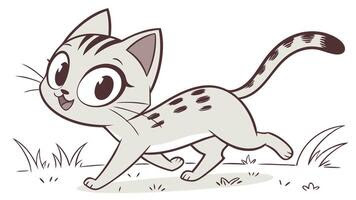This week, three thought experiments that we’ve recently used in schools that haven’t failed to get students talking. Also, we’re offering any school a 30 minute Oracy Consultation Call – at no cost. Scroll down for more details.
For all students: Mossop Then Mabel
A stray cat has recently started to visit you each day. Over time, you develop a bit of a bond – you regularly provide dinner, and the cat provides you with lots of affection. You give her a name – “Mossop” and she seems to respond when you call her name. As the nights draw in, Mossop can usually be found curled up on your sofa. She develops a minor ailment which means you need to take her to the vet, who gives you tablets for Mossop. You give her tablets for the next two weeks and she makes a full recovery.

After a few months, you notice Mossop is going missing for a few days at a time. She’s no longer staying overnight with you. She passes through your garden every few days, and happily accepts treats, but soon moves on her way.
It has now been three months since you last saw Mossop.
One day you bump into a neighbour, Charlie, from across the street, who tells you that around 3 months ago, they got a new cat, which they’ve called Mabel. They gave Mabel some posh cat-food, leftover from catsitting for somebody else, and ever since Mabel had a taste, they’ve never left. Charlie tells you how they’ve continued to buy the very best cat food for Mabel, and pampering it with the very best bedding. Mabel, of course, is Mossop!
Has Charlie stolen your cat?
Students may ask clarification questions on the scenario. If this happens, you can either embellish the story (just remember what you’ve specified!) or you can ask “Would it matter? Why?”
Other questions they
For older students: The Plank of Carneades
This thought experiment is known as “The Plank of Carneades,” named for a Greek philosopher who lived over 2200 years ago.
There are two shipwrecked sailors, Alexander and Zac. They both see a plank that can only support one of them, and both swim towards it.

Alexander gets to the plank first.
Zac, who is going to drown, pushes Alexander off and away from the plank. Alexander drowns.
Zac holds on to the plank and is later saved by a passing ship. Did Zac murder Alexander?
In answering this question, one of our online philosophers at p4he.org said, “It’s like murder, but it’s also like self-defense but without anyone having attacked you.” That tangled thought is a good illustration of what a thought experiment should do – present two plausible ideas that leave your thinking pulled in. two different directions.
Try this variation and see if it changes their thinking – a finely balanced thought experiment will often be sensitive to small changes in the scenario.
Bertha and Yasmin are shipwrecked sailors.
Bertha finds a plank of wood that can only support her weight.
Yasmin tries to grab it too. Bertha fights her off, and Yasmin drowns.
Did Bertha murder Yasmin?
Your Free Oracy Consultation Call
This is your chance to share your oracy aims, goals and crucially “pain points” with us, so we can give you practical strategies you can use immediately. It doesn’t matter if you’re a teacher, middle-leader or member of SLT – you just need to be in a school. No catch, or obligation to book anything. Just free advice. You can book yours now via our Calendly link below.
What’s on in the Philosoverse?
Tom is in two schools in London this week. He’s returning to South Hampstead High School Juniors to run a parent workshop followed by our popular Curriculum Clinics, working with small teams of teachers to identify new oracy opportunities in their topics.
He’s then at Broomwood School, West London, for a day wearing his Hidden Leaders hat for their Leadership day for Years 5-8.
Jason is at three schools in a day in Norfolk on Friday, showcasing oracy strategies to different year groups.
Your next free P4C webinar
During British Philosophy Fortnight, our colleagues at SAPERE are holding a free webinar to support you do more philosophy. It’s on Wednesday March 26th from 6pm-7pm, and will familiarise you with resources released as part of British Philosophy Fortnight that use ideas that matter and connect to young people such as toys, pets, clothes and video games as a route into philosophical thinking.
Your host for this session will be Emma Leeson SAPERE’s Training and Resources Lead and a SAPERE Trainer. These webinars are useful to both new P4Cers and to old hands, especially those who have other colleagues to support.
Best wishes,
Tom and Jason